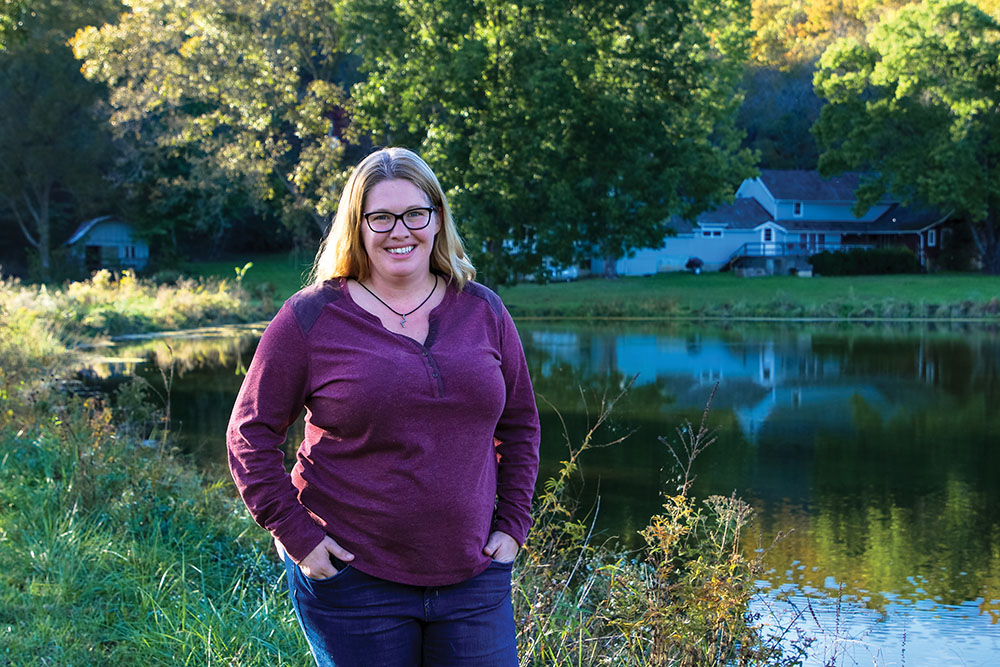Eco-investigator
Posted by Lindsay Stanford

Tracking the state of the ecosystem by studying its forests, fires and insect population is what makes Robin Verble tick, and she uses her findings to help advance healthy and sustainable management of natural areas.
Verble joined S&T in summer 2018 as founding director of the Ozark Research Field Station and associate professor of biological sciences.
“I put a lot of value on finding ways to provide students with more hands-on experience,” says Verble. “This opportunity not only increases their employability, but also helps them find their passion.”
The field station’s nine-acre biological resource site, made available to S&T through a partnership with the Missouri Department of Conservation, is located about 20 miles southwest of Rolla on land settled in the 1860s. The area contains ponds, streams, woods, wildlife and a historical house.
Verble hopes to extend S&T’s academic offerings through the field station by adding courses in field ecology, organismal biology and field taxonomy, and other courses across various university departments. She’s making the field station available S&T and the community through the public school system and organizations like the Girl Scouts, Missouri Master Naturalists and the Audubon Society.
“There’s so much to be learned from our local ecology and land use history,” says Verble. “As climates change, individual places change along with them — and place-based studies allow us to observe our impacts on these local systems. It’s important to connect this knowledge to college students, the university, public school students and naturalist groups.”
Verble’s research focus is fire ecology. She studies the effects of wildland and prescribed fires on the insect community, a bio-diverse species group that is easy to find and identify.
“Insects are a barometer for ecosystem health,” says Verble. “Especially after a fire, they’re a ubiquitous, bottom-up indicator of what shape the environment is in.”